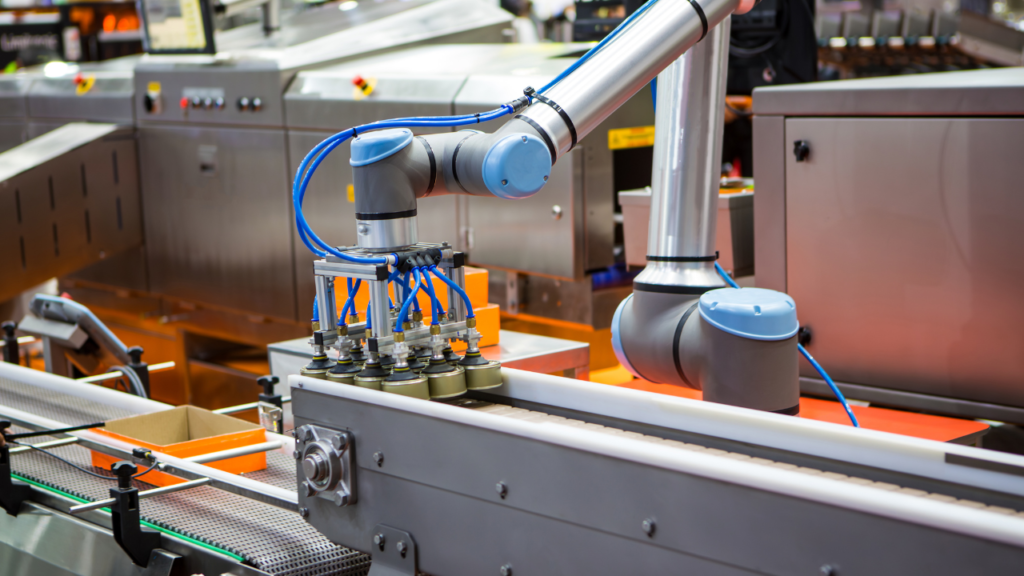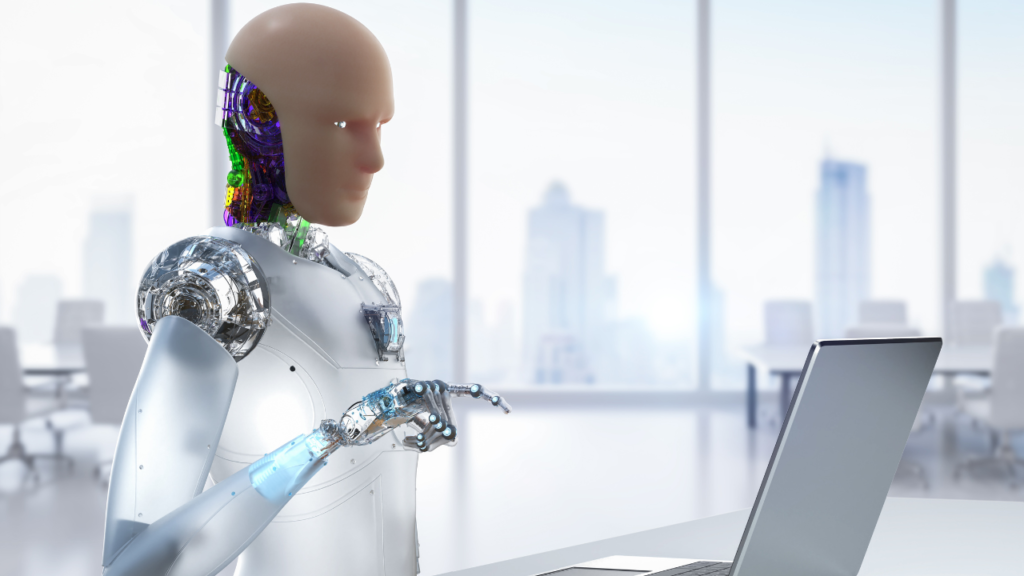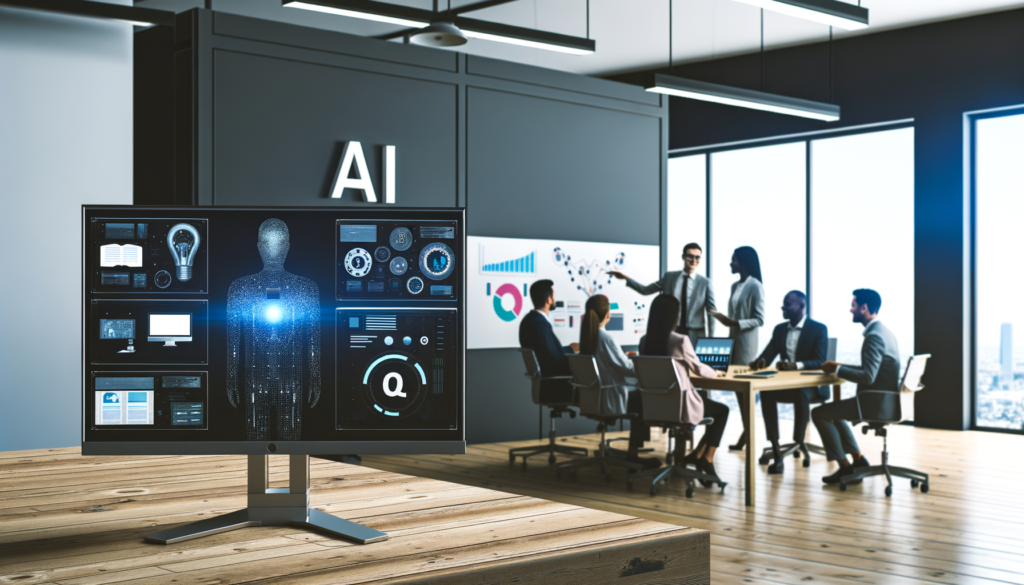Introduction to AI-Driven Business Automation
In today’s fast-paced business landscape, AI-driven business automation has emerged as a transformative force, reshaping how organizations operate. By integrating artificial intelligence into various processes, companies can streamline operations, reduce costs, and enhance productivity. This shift is not merely a trend; it represents a fundamental change in how businesses approach efficiency and innovation.
AI technologies, such as machine learning and natural language processing, enable organizations to analyze vast amounts of data quickly and accurately. This capability allows for informed decision-making and the identification of patterns that would be impossible for humans to discern in a timely manner. As a result, businesses can respond to market changes with agility and precision.
Moreover, AI-driven automation is not limited to large enterprises. Small and medium-sized businesses are also leveraging these technologies to compete effectively. By automating routine tasks, such as data entry and customer service inquiries, organizations can free up valuable human resources to focus on strategic initiatives. This not only enhances employee satisfaction but also drives innovation.
As we delve deeper into the various facets of AI-driven business automation, it becomes evident that the potential benefits are vast. From improving operational efficiency to enhancing customer experiences, the integration of AI into business processes is paving the way for a more productive and competitive future.
How AI Enhances Business Efficiency Through Automation

Artificial Intelligence (AI) has revolutionized the way businesses operate, significantly enhancing efficiency through automation. By leveraging advanced algorithms and machine learning, AI systems can analyze vast amounts of data at unprecedented speeds. This capability allows organizations to make informed decisions quickly, reducing the time spent on manual data analysis. Moreover, AI-driven automation minimizes human error, ensuring that tasks are completed accurately and consistently.
One of the most notable benefits of AI in business automation is its ability to streamline workflows. For instance, AI can automate routine tasks such as data entry, scheduling, and inventory management. This not only frees up valuable time for employees to focus on more strategic initiatives but also increases overall productivity. With AI handling repetitive tasks, businesses can allocate resources more effectively, leading to improved operational efficiency.
Additionally, AI enhances communication within organizations. Chatbots and virtual assistants powered by AI can manage customer inquiries, provide instant support, and even facilitate internal communication among teams. This level of automation ensures that responses are timely and relevant, improving customer satisfaction and employee collaboration.
Furthermore, AI’s predictive analytics capabilities allow businesses to anticipate market trends and customer behavior. By analyzing historical data, AI can identify patterns and provide insights that help organizations make proactive decisions. This foresight enables businesses to stay ahead of the competition and adapt to changing market conditions swiftly.
In summary, AI-driven automation not only increases efficiency but also empowers businesses to operate more intelligently. By integrating AI into their processes, organizations can achieve higher productivity, better resource management, and enhanced decision-making capabilities, ultimately driving growth and success in an increasingly competitive landscape.
Key Areas Where AI Drives Business Automation: Content Creation and Optimization
In the realm of content creation and optimization, AI is revolutionizing how businesses approach their marketing strategies. By leveraging advanced algorithms, AI tools can analyze vast amounts of data to identify trending topics, optimal keywords, and audience preferences. This capability allows businesses to create highly relevant content that resonates with their target audience, ultimately driving engagement and conversions.
AI-driven content generation tools can produce articles, blogs, and social media posts with remarkable speed and efficiency. These tools utilize natural language processing (NLP) to generate human-like text, ensuring that the content is not only informative but also engaging. Furthermore, AI can assist in content optimization by suggesting improvements based on SEO best practices, such as keyword density, readability scores, and meta descriptions.
Another significant area where AI enhances content strategy is through personalization. By analyzing user behavior and preferences, AI can tailor content recommendations to individual users, increasing the likelihood of interaction. For instance, e-commerce platforms can utilize AI to suggest products based on previous purchases or browsing history, creating a more personalized shopping experience.
Moreover, AI tools can automate the process of A/B testing, allowing businesses to experiment with different content formats and headlines to determine what resonates best with their audience. This data-driven approach not only saves time but also ensures that marketing efforts are continually refined for maximum impact.
In summary, AI is a game-changer in content creation and optimization, enabling businesses to produce high-quality, relevant content efficiently while enhancing user engagement through personalization and data-driven insights.
Leveraging AI for Streamlined SEO and Marketing Tasks
In the fast-paced world of digital marketing, leveraging AI can significantly enhance the efficiency of SEO and marketing tasks. By utilizing advanced algorithms and machine learning, businesses can automate various processes that traditionally required extensive manual effort. For instance, AI tools can analyze vast amounts of data to identify trends and patterns, allowing marketers to make informed decisions quickly.
One of the most impactful applications of AI in SEO is keyword research. AI-driven tools can analyze search volume, competition, and user intent to suggest the most effective keywords for a specific niche. This not only saves time but also ensures that businesses target the right audience. Additionally, AI can optimize content by providing insights into readability, keyword density, and overall SEO performance, helping marketers create high-quality content that ranks well on search engines.
Moreover, AI can enhance personalization in marketing campaigns. By analyzing customer behavior and preferences, AI systems can segment audiences and tailor messages that resonate with specific groups. This level of personalization leads to higher engagement rates and improved conversion rates. Automated email marketing platforms, powered by AI, can send personalized content at optimal times, ensuring that messages reach customers when they are most likely to engage.
Another area where AI shines is in predictive analytics. By examining historical data, AI can forecast future trends and customer behaviors, allowing businesses to adjust their strategies proactively. This capability not only enhances marketing effectiveness but also helps in resource allocation, ensuring that marketing budgets are spent wisely.
In summary, integrating AI into SEO and marketing tasks streamlines processes, enhances decision-making, and ultimately drives better results. By embracing these technologies, businesses can stay ahead of the competition and adapt to the ever-evolving digital landscape.
Automating Repetitive Tasks with AI: Link Building, Outreach, and Technical Audits

Automating repetitive tasks is one of the most significant advantages of integrating AI into business processes, particularly in the realms of link building, outreach, and technical audits. Link building is essential for improving a website’s authority and search engine ranking. AI tools can analyze vast datasets to identify potential link opportunities, assess the quality of backlinks, and even predict which links are likely to yield the best results. This not only saves time but also enhances the effectiveness of link-building strategies.
In terms of outreach, AI can streamline the process by automating email campaigns and personalizing communication. Advanced algorithms can segment audiences based on behavior and preferences, ensuring that outreach efforts are targeted and relevant. This level of personalization increases the likelihood of engagement and response, making outreach campaigns more successful.
When it comes to technical audits, AI can conduct comprehensive analyses of a website’s performance, identifying issues such as broken links, slow loading times, and SEO compliance. These audits can be performed in a fraction of the time it would take a human, allowing businesses to quickly address problems and optimize their online presence.
Moreover, AI-driven tools can continuously monitor a website’s health, providing real-time insights and alerts when issues arise. This proactive approach ensures that businesses can maintain optimal performance without the constant manual oversight that traditional methods require.
In summary, leveraging AI for these repetitive tasks not only enhances efficiency but also allows teams to focus on more strategic initiatives, ultimately driving better results and fostering growth.
Balancing AI Automation with Human Expertise for Optimal Results
In the rapidly evolving landscape of business automation, the integration of AI technologies is undeniably transformative. However, relying solely on AI can lead to a disconnect between automated processes and the nuanced understanding that human expertise brings. Striking a balance between AI-driven automation and human insight is essential for achieving optimal results.
While AI excels at processing vast amounts of data and executing repetitive tasks with precision, it lacks the emotional intelligence and contextual awareness that humans possess. For instance, in areas such as customer service, AI can handle inquiries efficiently, but human agents are crucial for addressing complex issues that require empathy and understanding.
To achieve a harmonious blend of AI and human capabilities, businesses should consider the following strategies:
- Collaborative Workflows: Design workflows that allow AI to handle routine tasks while humans focus on strategic decision-making and creative problem-solving.
- Continuous Learning: Encourage ongoing training for employees to enhance their skills in conjunction with AI tools, ensuring they can leverage technology effectively.
- Feedback Loops: Implement systems where human feedback informs AI algorithms, improving their accuracy and relevance over time.
- Human Oversight: Maintain human oversight in critical processes to ensure ethical considerations and quality control are upheld.
By fostering a collaborative environment where AI and human expertise coexist, businesses can harness the strengths of both. This synergy not only enhances productivity but also drives innovation, allowing organizations to adapt to changing market dynamics with agility and foresight. Ultimately, the goal is to create a workforce that is empowered by technology, where AI serves as a valuable tool that complements human creativity and strategic thinking.
Top AI Tools for Implementing AI-Driven Business Automation

In the rapidly evolving landscape of business automation, leveraging the right AI tools can significantly enhance efficiency and productivity. Here are some of the top AI tools that are making waves in the industry:
- Zapier: This tool allows users to automate workflows by connecting various apps and services. With its user-friendly interface, businesses can create automated tasks without needing extensive coding knowledge.
- HubSpot: Known for its marketing automation capabilities, HubSpot integrates AI to optimize email campaigns, manage customer relationships, and analyze marketing performance, making it a comprehensive solution for businesses.
- Grammarly: Beyond grammar checking, Grammarly uses AI to enhance content creation by suggesting style improvements and optimizing readability, ensuring that your written communication is clear and engaging.
- SEMrush: This all-in-one SEO tool employs AI to provide insights into keyword strategies, competitor analysis, and content optimization, helping businesses improve their online visibility.
- Ahrefs: A powerful tool for link building and technical audits, Ahrefs utilizes AI to analyze backlinks, track keyword rankings, and provide actionable insights for improving website performance.
- ChatGPT: This conversational AI can assist in customer service automation, content generation, and even brainstorming ideas, making it a versatile tool for various business needs.
These tools not only streamline processes but also empower teams to focus on strategic initiatives rather than mundane tasks. By integrating AI-driven solutions, businesses can achieve a competitive edge in their respective markets.



